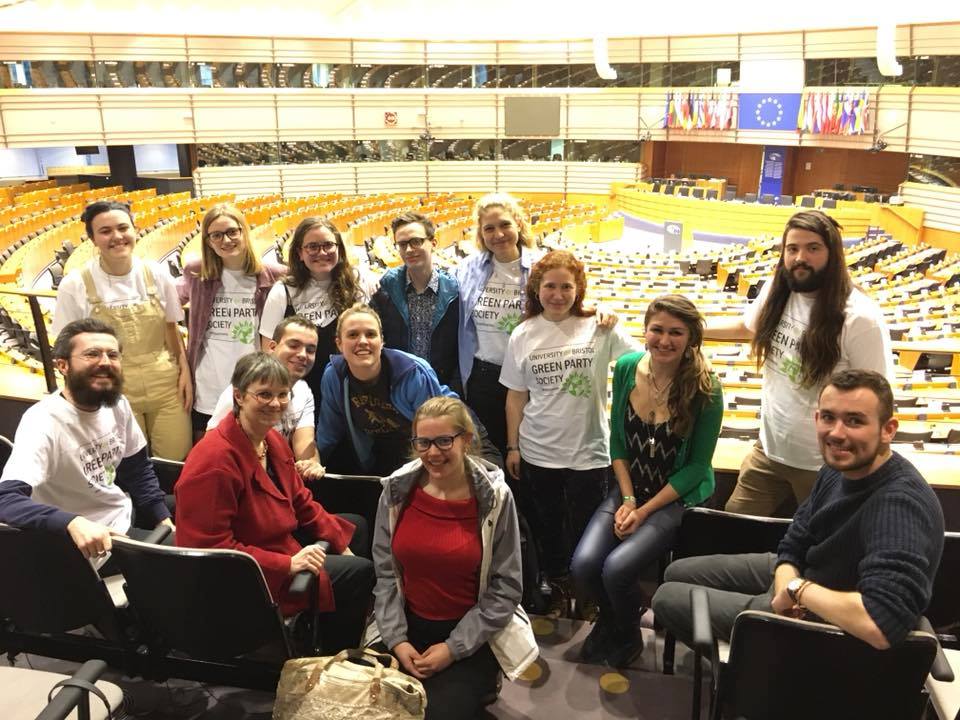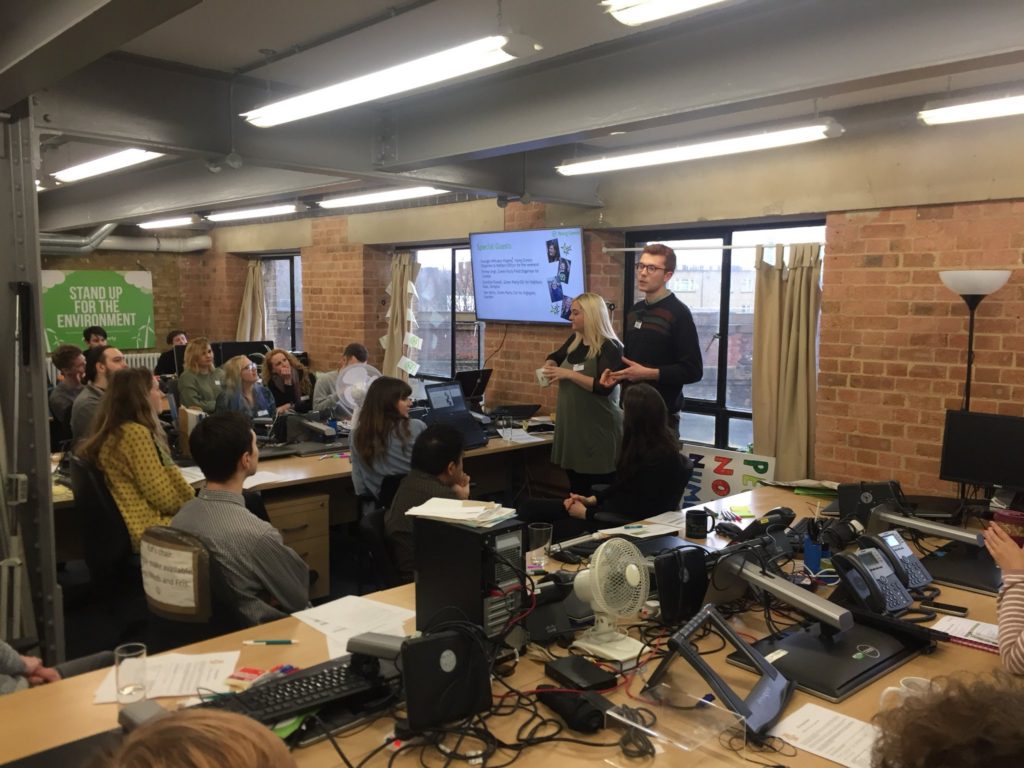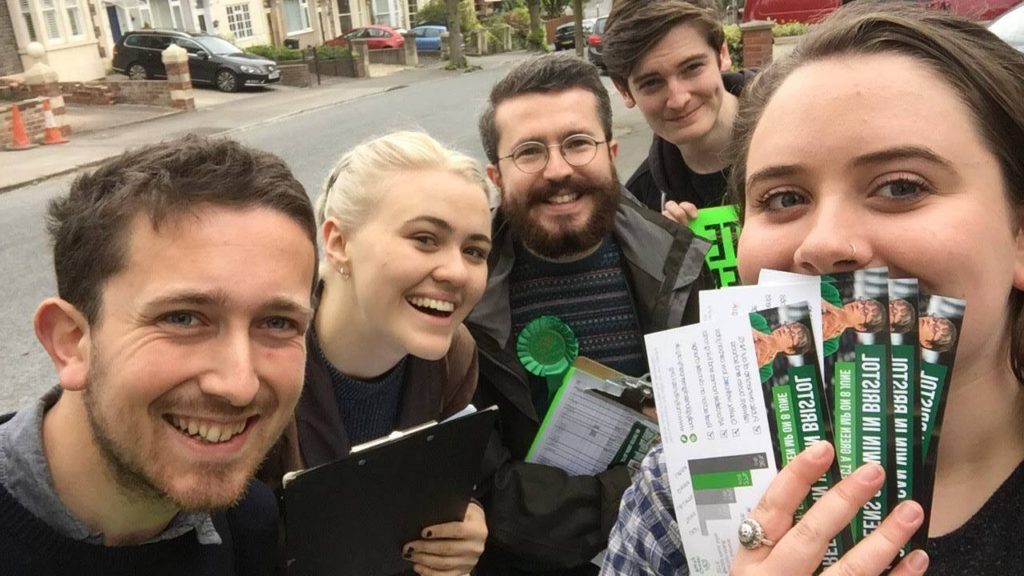The Greens will fail if we don’t empower young people
Certain sections of the Green Party are considering disempowering Young Greens. The party is currently undergoing a holistic review to improve its internal structures and some people are taking it as an opportunity to say the Young Greens should have their representatives on the party’s executive removed.

This is written in a personal capacity, but I’m a current serving member of the Green Party Executive. I hold the Internal Communications Coordinator role in a job-share with two other excellent Young Green activists – Molly Gerlach-Arthurs and Lee-Anne Lawrance. My journey into the party started when I direct messaged the then Green Party Leader Natalie Bennett on Twitter to ask how I could support the party. She recommended I get involved in the Young Greens, so I set up and chaired a society at my university which signed up over 130 people. I eventually got more involved in the party and was elected to serve as Elections Officer, Campaigns Officer and International Spokesperson on the Executive Committee of Young Greens of England and Wales.
The opportunities I had for training via the Young Greens gave me the vital foundations for working in both professional and voluntary politics. Without that, I’d likely be years behind my peers in parties like Labour, the Liberal Democrats and Conservatives where such comprehensive support is not as widely available. Whilst the other main parties have powerful and wealthy backers who can fund wide-scale training schemes or internships in dozens of parliamentary offices, the Greens simply don’t have those support mechanisms. However, the Young Greens work extremely hard to fundraise for their small but effective 30-under-30 training, which Amelia Womack completed prior to getting elected as the Deputy Leader of the party.

Over the past three years or so, Young Greens membership has represented anything from roughly 20 percent to 35 percent of the overall party. With such a huge group working cohesively together towards Green goals, it’s important they are enfranchised appropriately into our overall party structures.
The majority of their membership are young people and it is young people who have the most to lose from the establishment’s insistence on following neoliberal ideology, which demands infinite economic growth on our finite planet. Our parents and their parents abdicated their responsibility for delivering a sustainable society for the common good, so it’s been left to us as young people to inherit a burning planet.
It is difficult to understate how important it is that young people are enfranchised into the political process. The youth vote is chronically low, with young people consistently reporting they feel like they don’t know enough, or that the establishment are just looking out for older people. We can’t have a Green or radical left Government without the youth vote, so implementation of environmental policies are dependent on empowering young people. We are the ones who are already having to deal with multiple society-wide crises like climate change, runaway capitalism, cyber-warfare, antibiotic resistance and political extremism due to alienation are all problems not previously faced by humanity, certainly not in their current forms anyway. We are the ones who will be, and in some cases already are, the next leaders of non-governmental organisations, leaders of businesses and officials in public office making decisions about how to help society become more adaptive and resilient.

On top of all that, Young Greens put in so much effort into pushing the party towards electoral success by leafleting, door-knocking and putting themselves above the parapet by standing for public office. Yet for all their contributions, young members tell me time and time again that they experience older members undermining and speaking down to them because of their age. Leafleting and other relatively mundane tasks, albeit important, are sometimes expected from young people as though that’s all they’re useful for. Young Greens as an organisation exists to empower young people and students into becoming defining voices in their local parties. It would be a massive smack in the face to reward them by degrading their empowered status in the party.
The people advocating for Youngs Greens to have their power diminished tend to not be Young Greens themselves. In fact, they often seem to be old white men whose privilege and lack of self awareness apparently knows no bounds. Even though they have been young themselves, they sometimes forget that young people can bring a wealth of experience and perspective which they might lack – particularly in an ever-changing political landscape. Social justice and intersectional feminism have evolved and sometimes older people need to realise they might be on the wrong side of history.
Young Greens will remain politically powerful regardless of their position on the Green Party Executive because of their numbers, how articulate they are and how ambitious they are as a liberation group. It is far wiser for all to include their voice at the highest tables, rather than having them on the outside feeling like they don’t have a stake in the party they are helping to build.


Hi Tom – I’m the co-chair of the Holistic Review and I’m very puzzled by your statement about the review here. Maybe you could contact me directly and we can have a chat about whatever’s behind this.
I too think very highly of Young Green in our Party and movement, glad to hear that this echoed within Party. Thanks for all the amazing things you do
Just for the record, in all the consultations and interviews undergone so far by the Holistic Review Commission there has been no suggestion that the Young Greens should be dis-empowered in any way. In fact the emerging view is that the Young Greens are an excellent group in the party, and are vital for our future success. If there are some people in the party who don’t value the YGs they will be standing in a very lonely corner.
By the way, there are also two Young Greens on the Commission, so you have strong advocates if you needed them.
Judy Maciejowska
member of the Holistic Review Commission and GPEx
I believe this article to be a reaction to a Facebook post which posed the question why the Young Greens should have a reserved seat on GPEx, when other groups within the party have none. While it set off an interesting if somewhat robust debate among Greens on that Facebook page, I question the wisdom of carrying that debate to an external forum. Also, isn’t it a bit early to speak of ’emerging views’? And finally, while I was aware that two members of the Young Greens were selected to serve on the Commission, I did not realise that they were selected to serve as advocates for the Young Greens rather than the whole party. Tokenism of that kind would not only devalue the position of said members, but of the whole of the Commission.
As a Green Party member, I completely endorse your views Tom. We purport to be a forward-thinking party that wants to lower the voting age and we also claim to be inclusive. If we, as older members, some of us ancient rather than old, aren’t looking to the future, the future of today’s young people, then for whom are we being Green Party members?